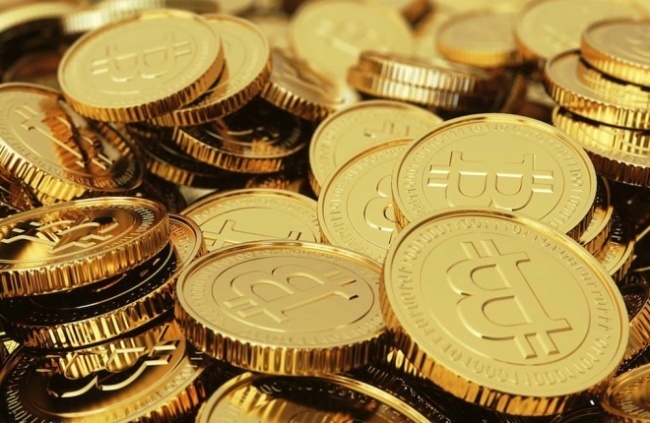South Korea’s cryptocurrency exchanges largely appear unshaken despite the latest drop in bitcoin price fueled by the Chinese government’s reported plans to shut down domestic bitcoin exchanges, which experts here say would more likely stabilize, rather than stumble, the market.
 |
(Herald DB) |
The Korea Composite Bitcoin Price, based on prices of a bitcoin in major exchanges in Korea’s Bithumb, Korbit and Coinone, came to 4,351,533 won ($3,842.1) as of 4 p.m. Thursday, down 5.9 percent compared to a day prior, according to local digital market tracker Coinass. It was a 14.5 percent weekly drop from Sept. 7 at midnight.
On Wednesday, the Kobic sank 7.1 percent, the largest since the loss on July 16 by 8.2 percent.
The retreat of Kobic, which topped 5 million won a week prior, came as media outlets began to report Friday that China’s government might launch a sweeping crackdown on local exchanges including three major platforms -- OKCoin, BTC China and Huobi. The measure is a follow-up to a move to outlaw initial coin offerings earlier in September. The reports cited unidentified sources who gave different dates for the looming crackdown. China’s financial authorities have kept silent about the speculations.
China’s clout is not new to bitcoin traders in Korea.
On Feb. 9, when China carried out a bitcoin withdrawal freeze from domestic bank accounts to stem risks, the Kobic showed a 9.1 percent plunge.
Also a few days before China resumed the withdrawal early in June, the Korean bitcoin market severely fluctuated. The Kobic plummeted 40.7 percent for two days through May 27, after the price soared 49.2 percent for two days through May 25.
In comparison, data from Coinass suggested the degree of the latest drop in the bitcoin price is not larger than expected. “We don’t see the latest drop as a huge concern but a normal move,” a spokesperson at Bithumb, Korea’s largest digital currency exchange, told The Korea Herald,
Local experts said the bitcoin price drop was a thing to come amid its sudden surge in August.
“The China bitcoin market has been overheated, and I’m not negative about (the cooldown)” said Kim Jin-hwa, a former president of Korbit who is now preparing to set up an association to advocate cryptocurrency business entities.
China’s ban on the digital currency trade, if implemented, would be transient and would help the market stabilize itself from “potential speculative bubbles,” Kim added.
“(The ban) would be merely a sign of an alert to the market and a measure to adjust the pace (of the price surge),” he said, citing China’s actions in the past, including the suspension of bitcoin withdrawal in February, which eventually “led to price stabilization and recovery (of bitcoin price) in the long run,” without “hurting bitcoin’s fundamental.”
Another expert doubted the possibilities of drastic changes in the Korean market fueled by Chinese bitcoin traders’ influx into neighboring bitcoin powerhouses, including Korea.
“Nothing would be certain to (Chinese traders) in this setting,” Hong Ki-hoon, a business administration professor at Hongik University and longtime bitcoin advocate, told The Korea Herald. “Some would transfer to exchanges in Korea, not being sure whether trading bitcoins offshore is within legal boundaries.”
To exchanges in Korea, harboring the influx of bitcoins from China is one thing, while benefiting from it is another, he added.
By Son Ji-hyoung
(
consnow@heraldcorp.com)







![[Today’s K-pop] Blackpink’s Jennie, Lisa invited to Coachella as solo acts](http://res.heraldm.com/phpwas/restmb_idxmake.php?idx=644&simg=/content/image/2024/11/21/20241121050099_0.jpg)
